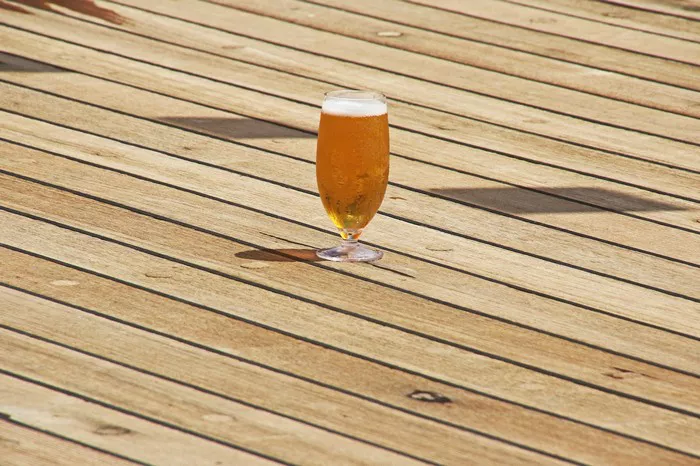In the realm of alcohol consumption, the question often arises: can you drink beer after whiskey? This inquiry isn’t merely about mixing drinks for the sake of experimentation; it delves into the potential effects on one’s body, both in terms of enjoyment and safety. Let’s explore this topic in depth, considering various factors such as alcohol content, physiological effects, and cultural practices.
Understanding the Dynamics of Alcohol Consumption
When pondering whether one can drink beer after whiskey, it’s essential to grasp the fundamentals of alcohol metabolism. Alcohol, regardless of its form, is metabolized primarily in the liver. The body processes roughly one standard drink per hour, although individual factors such as weight, gender, and tolerance can influence this rate.
Beer typically contains a lower alcohol content than whiskey, with an average of 4-6% alcohol by volume (ABV). In contrast, whiskey boasts a higher ABV, typically ranging from 40% to 50%. This significant difference in alcohol concentration can impact how the body processes these beverages and ultimately influences the experience of consuming them in succession.
The Physiological Effects of Mixing Beer and Whiskey
When considering whether you can drink beer after whiskey, it’s crucial to acknowledge the potential physiological effects of combining these beverages. Consuming alcohol in any form can lead to intoxication, affecting cognitive function, coordination, and judgment. However, the manner in which different types of alcohol interact within the body can intensify these effects.
Beer is often perceived as a more “filling” drink due to its carbonation and higher volume. This may lead individuals to consume it more slowly compared to shots of whiskey, which are typically consumed in smaller quantities. However, following whiskey with beer can prolong the duration of alcohol consumption, potentially leading to increased intoxication over time.
Moreover, the combination of beer and whiskey can exacerbate the risk of dehydration. Both alcohol and carbonation have diuretic effects, meaning they increase urine production and contribute to fluid loss. Pairing these beverages may intensify dehydration, potentially leading to symptoms such as headache, fatigue, and dizziness.
See Also: China Resources Beer Reports Increased Net Profit in 2023 Driven by Higher Sales
Cultural Perspectives on Mixing Beer and Whiskey
The question of whether one can drink beer after whiskey is not only a matter of physiological concern but also a cultural consideration. Throughout history, various cultures have developed traditions and rituals surrounding alcohol consumption, including the mixing of different beverages.
In some regions, such as parts of Europe and North America, the practice of “chasing” whiskey with beer is relatively common. This involves consuming a shot of whiskey followed immediately by a sip of beer, often as part of a social gathering or celebration. While this practice may be ingrained in certain cultural contexts, it’s essential to approach it with awareness of individual tolerance and moderation.
Conversely, other cultures may adhere to stricter guidelines regarding alcohol consumption, eschewing the mixing of different types of alcohol altogether. In these contexts, the idea of drinking beer after whiskey may be met with skepticism or disapproval, reflecting broader attitudes toward alcohol and its consumption.
Safety Considerations and Responsible Drinking
Regardless of cultural norms or personal preferences, it’s crucial to prioritize safety and responsible drinking when considering whether you can drink beer after whiskey. Alcohol consumption carries inherent risks, including impaired judgment, increased susceptibility to accidents, and long-term health consequences such as liver disease and addiction.
Moderation is key when consuming alcohol, regardless of the combination of beverages involved. Pace yourself, alternate between alcoholic and non-alcoholic drinks, and be mindful of your body’s signals. If you choose to mix beer and whiskey, do so in moderation and be aware of how each drink affects your level of intoxication.
Additionally, never drink alcohol and drive, operate heavy machinery, or engage in activities that require alertness and coordination. Designate a sober driver or utilize alternative transportation options to ensure the safety of yourself and others.
Conclusion: Finding Balance in Alcohol Consumption
In conclusion, the question of whether you can drink beer after whiskey encompasses a variety of considerations, including physiological effects, cultural practices, and safety concerns. While mixing different types of alcohol is not inherently dangerous, it’s essential to approach such combinations with caution and moderation.
Whether you choose to indulge in a shot of whiskey followed by a refreshing beer or opt for separate beverages altogether, the key is to listen to your body, respect your limits, and prioritize responsible drinking habits. By doing so, you can enjoy the pleasures of alcohol in a manner that enhances social experiences while safeguarding your health and well-being.


